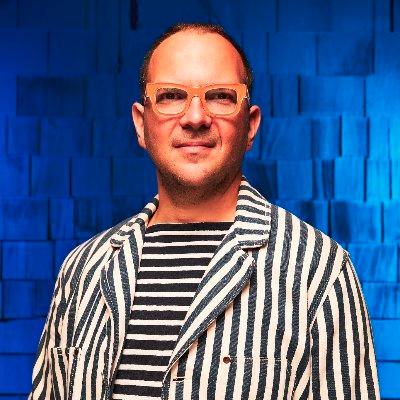See Cory’s talk “Interop and Antitrust Are Having a Moment” at 11 am PST on Saturday, November 11, 2023. Livestream link here.

Disenshittifying the Internet is a three-stage process: first, we have to use traditional antitrust to break up monopolies and ban anticompetitive practices; second, we have to force tech companies to offer interop gateways for smaller projects to connect to; and finally, we have to re-legalize the scraping, bots and reverse-engineering that were once the norm.
All three of these proposals have gone mainstream, among very different kinds of scholars, regulators and lawmakers. It’s a moment!
Bio:
Cory Doctorow (craphound.com) is a science fiction novelist, journalist and technology activist. He is a contributor to many magazines, websites and newspapers. He is a special consultant to the Electronic Frontier Foundation (eff.org), a non-profit civil liberties group that defends freedom in technology law, policy, standards and treaties. He holds an honorary doctorate in computer science from the Open University (UK), where he is a Visiting Professor; he is also a MIT Media Lab Research Affiliate and a Visiting Professor of Practice at the University of North Carolina’s School of Library and Information Science. In 2007, he served as the Fulbright Chair at the Annenberg Center for Public Diplomacy at the University of Southern California.
His novels have been translated into dozens of languages and are published by Tor Books, Head of Zeus (UK), Titan Books (UK) and HarperCollins (UK). He has won the Locus, Prometheus, Copper Cylinder, White Pine and Sunburst Awards, and been nominated for the Hugo, Nebula and British Science Fiction Awards.
His recent books include CHOKEPOINT CAPITALISM (with Rebecca Giblin) (2022), a nonfiction book about creative labor markets and monopoly; ATTACK SURFACE (2020), a standalone sequel to LITTLE BROTHER intended for adults, POESY THE MONSTER SLAYER, a picture book for young children (2020), the nonfiction tech/politics book HOW TO DESTROY SURVEILLANCE CAPITALISM (2020), RADICALIZED (2019) and WALKAWAY (2017), science fiction for adults; and IN REAL LIFE, a young adult graphic novel created with Jen Wang (2014).
His latest young adult novel is HOMELAND, the bestselling sequel to 2008’s LITTLE BROTHER. His New York Times Bestseller LITTLE BROTHER was published in 2008. His latest short story collection is WITH A LITTLE HELP, available in paperback, ebook, audiobook and limited edition hardcover. In 2011, Tachyon Books published a collection of his essays, called CONTEXT: FURTHER SELECTED ESSAYS ON PRODUCTIVITY, CREATIVITY, PARENTING, AND POLITICS IN THE 21ST CENTURY (with an introduction by Tim O’Reilly) and IDW published a collection of comic books inspired by his short fiction called CORY DOCTOROW’S FUTURISTIC TALES OF THE HERE AND NOW. THE GREAT BIG BEAUTIFUL TOMORROW, a PM Press Outspoken Authors chapbook, was also published in 2011.
LITTLE BROTHER was nominated for the 2008 Hugo, Nebula, Sunburst and Locus Awards. It won the Ontario Library White Pine Award, the Prometheus Award as well as the Indienet Award for bestselling young adult novel in America’s top 1000 independent bookstores in 2008; it was the San Francisco Public Library’s One City/One Book choice for 2013. It has also been adapted for stage by Josh Costello.
He co-founded the open source peer-to-peer software company OpenCola, and serves on the boards and advisory boards of the Participatory Culture Foundation, the Clarion Foundation, the Open Technology Fund and the Metabrainz Foundation. He maintains a daily blog at Pluralistic.net.
Video of Cory’s talk from Aaron Swartz Day 2022: “Giving Exploited Artists More Copyright Is Like Giving Bullied Schoolkids More Lunch Money”
For 40 years, we’ve expanded copyright – longer terms, broader subject matter, higher statutory damages, lower evidentiary bars – and while the entertainment industry has exploded over that period, the share of revenues claimed by creators has only fallen, both in real terms and proportionally.
It’s not hard to see why: with only four publishers, four studios, three labels, one online book/audiobook-store, one national retail chain, one cinema chain, one streaming music giant, one independent trade-book distributor, etc, etc, every artist must pass through a “chokepoint” to reach their audience, and at that chokepoint, any copyright that parliament has seen fit to apportion to creators is expropriated by a multinational corporation.
Chokepoint capitalism can’t be solved with more copyright, no more that your bullied kid’s lack of a hot lunch can be addressed by giving that kid more lunch money. To resolve the problems of declining creative incomes, we have to think *structurally*, not individually, by fixing our creative labour markets and blowing up chokepoints wherever we find them.
Video of Cory’s Talk from Aaron Swartz Day 2021: “Move Fast and Fix Things: Aaron’s Legacy, Competitive Compatibility and the CFAA”
Video of Cory’s talk from Aaron Swartz Day 2020: “Early Onset Oppenheimers”
Tech workers have real labor power; their skills are in short supply and in some cases, the things they refuse to build will simply not get built. People get involved with tech because they, themselves, have experienced the liberatory power of technology, the way networks can free you from constraint and send your mind and ideas around the world.
How can we convince technologists to use their power to deliver the same liberation to their users, rather than confiscating their users’ freedom?